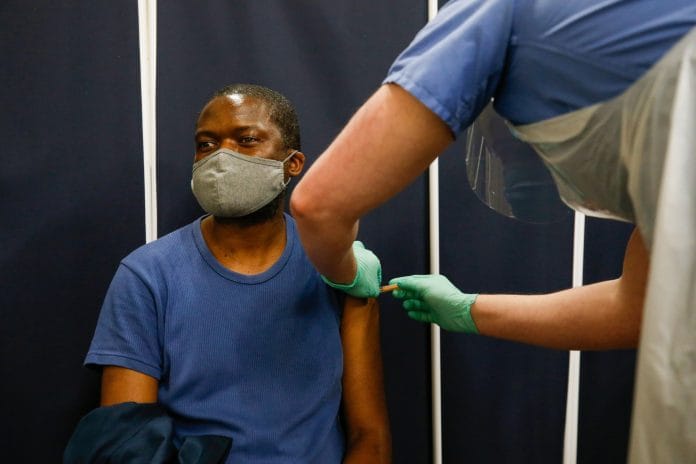New Delhi: One in two people hospitalised with Covid-19 has developed at least one complication affecting major organs of the body, says a study in The Lancet published Friday.
The study of post-Covid health of more than 70,000 people in 302 UK hospitals, showed that the disease had affected the kidney, heart and lungs of patients who had to undergo hospitalisation after being infected with the virus, and age or comorbidity was not a major factor in these cases.
“This work contradicts current narratives that COVID-19 is only dangerous in people with existing comorbidities and the elderly. Dispelling and contributing to the scientific debate around such narratives has become increasingly important,” Calum Semple, chief investigator of the study and a professor at the University of Liverpool, UK, said in a statement.
The study is the first to assess a range of in-hospital complications, and their associations with age, sex and ethnicity, and their outcomes for the patients. The findings dispel suggestions that Covid-19 presents no risk to younger healthy adults, many of who remain unvaccinated.
The researchers also said policy makers and healthcare planners should anticipate that large amounts of health and social care resources will be required to support those who survive Covid-19.
Of the 73,197 patients assessed, 56 per cent were men, 81 per cent had an underlying health condition, 74 per cent were of white ethnicity, and the average age of the cohort was 71 years. Over 12 per cent of the people assessed were below 49 years. Almost one in three participants in the study died. Overall, complications occurred in 50 per cent of all participants, including in 44 per cent of participants who survived.
Also read: 1 in 4 Himachal adults fully vaccinated, against India’s 1 in 18 — here’s how hill state did it
Age no bar
The study, led by researchers from the University of Edinburgh and the University of Liverpool, UK, said complications in patients admitted to hospital with Covid-19 are high even in young and previously healthy individuals — as much as 27 per cent of 19-29-year olds and 37 per cent of 30-39 year-olds experienced a post-Covid complication.
Some of the complications were so severe that 13 per cent of 19-29-year-olds and 17 per cent of 30-39-year-olds were unable to look after themselves after being discharged from the hospital.
The study looked at cases between 17 January and 4 August 2020 — a period before vaccines were widely available in the UK. New variants of the virus had also not arisen at the time.
Disease severity is an indicator of complications even in younger adults, “so prevention of complications requires a primary prevention strategy, meaning vaccination”, Semple said.
Patients in hospitals with Covid-19 frequently had complications of the disease, “even those in younger age groups and without pre-existing health conditions. These complications could affect any organ, but particularly the kidney, heart and the lungs,” said Ewen Harrison, of the University of Edinburgh.
Those with complications had poorer health on discharge from the hospital, and some would have long-term consequences, he added.
For the purpose of the study, patients were assessed multiple times either until discharge or for 28 days after hospitalisation. The study also investigated the ability of patients to look after themselves when discharged from the hospital.
Acute kidney injury and anaemia were most common
The most common complications were renal — affecting almost one in four people. Respiratory complications affected around one in five people and systemic complications affected one in six people.
Cardiovascular complications were reported in around one in eight participants. Less than one in 20 people reported neurological complications and gastrointestinal or liver complications were reported in one in every 10 people.
Specifically, acute kidney injury, probable acute respiratory distress syndrome, liver injury, anaemia, and cardiac arrhythmia were the most common complications.
Complications rose with increasing age, occurring in 39 per cent of 19-49-year-olds, compared to 51 per cent of people aged 50 and older.
Complications were more common in men compared with females, with males aged older than 60 years the most likely group to have at least one complication.
(Edited by Paramita Ghosh)
Also read: Delta variant transmissibility likely to up Covid cases & pressure on healthcare, WHO warns






